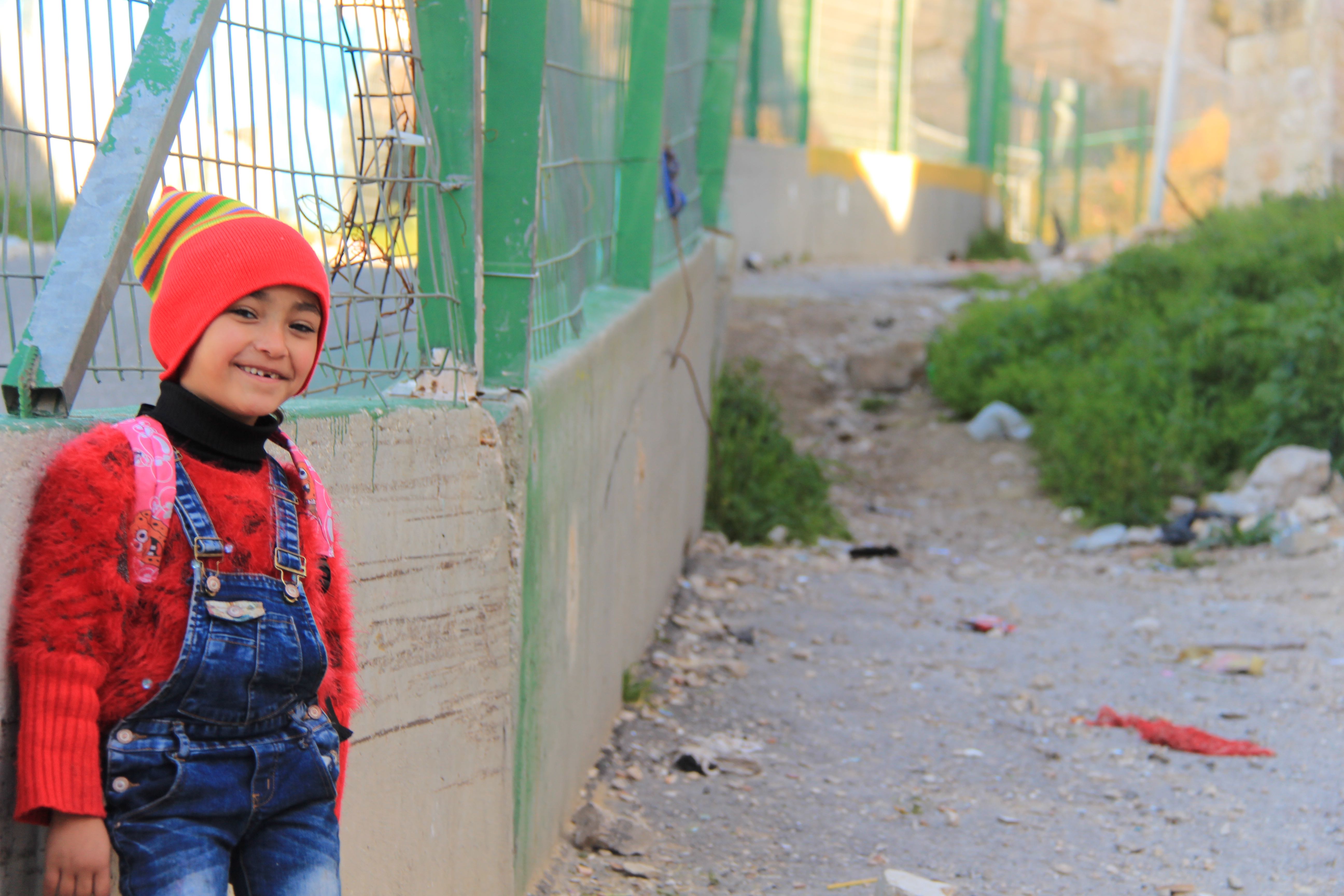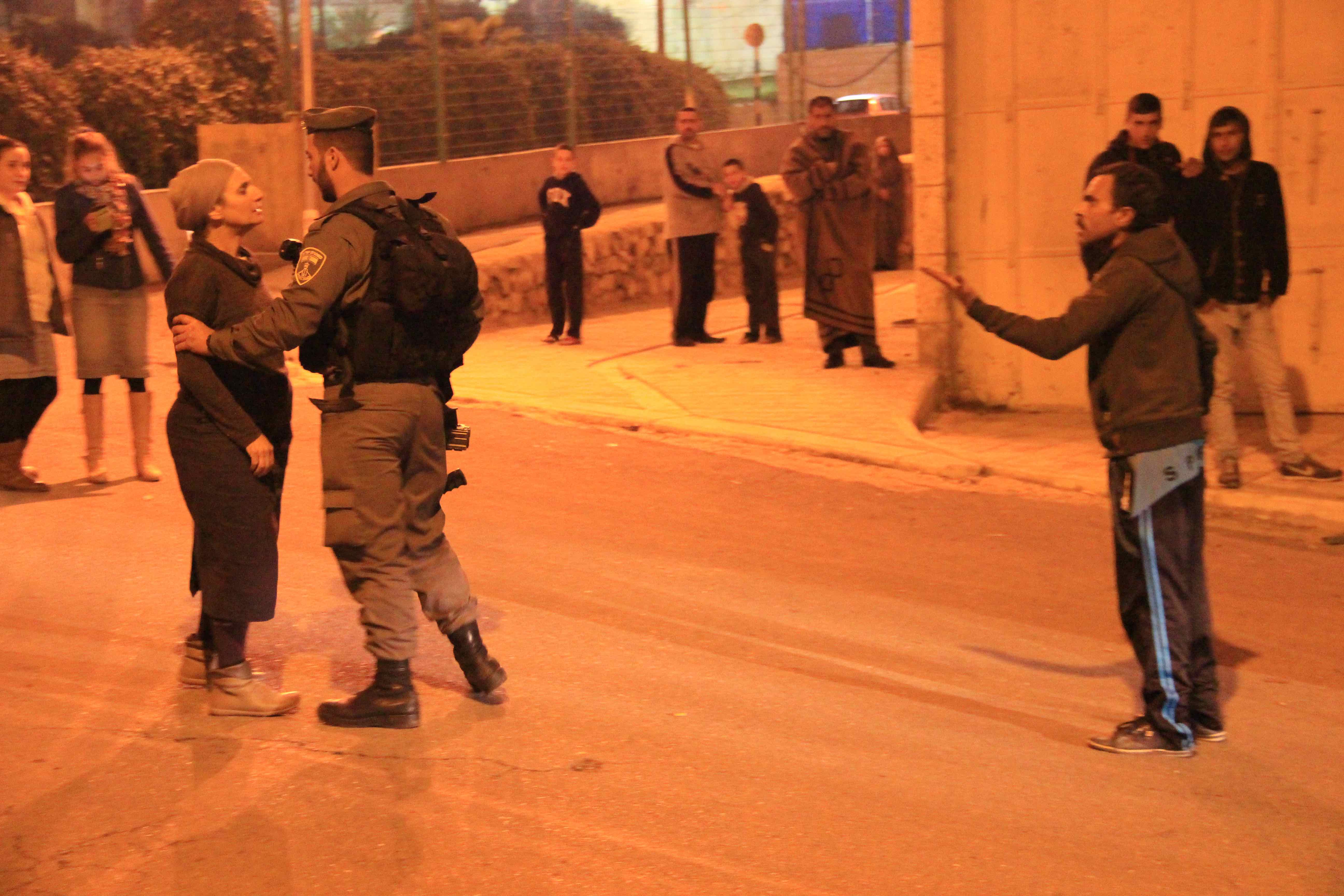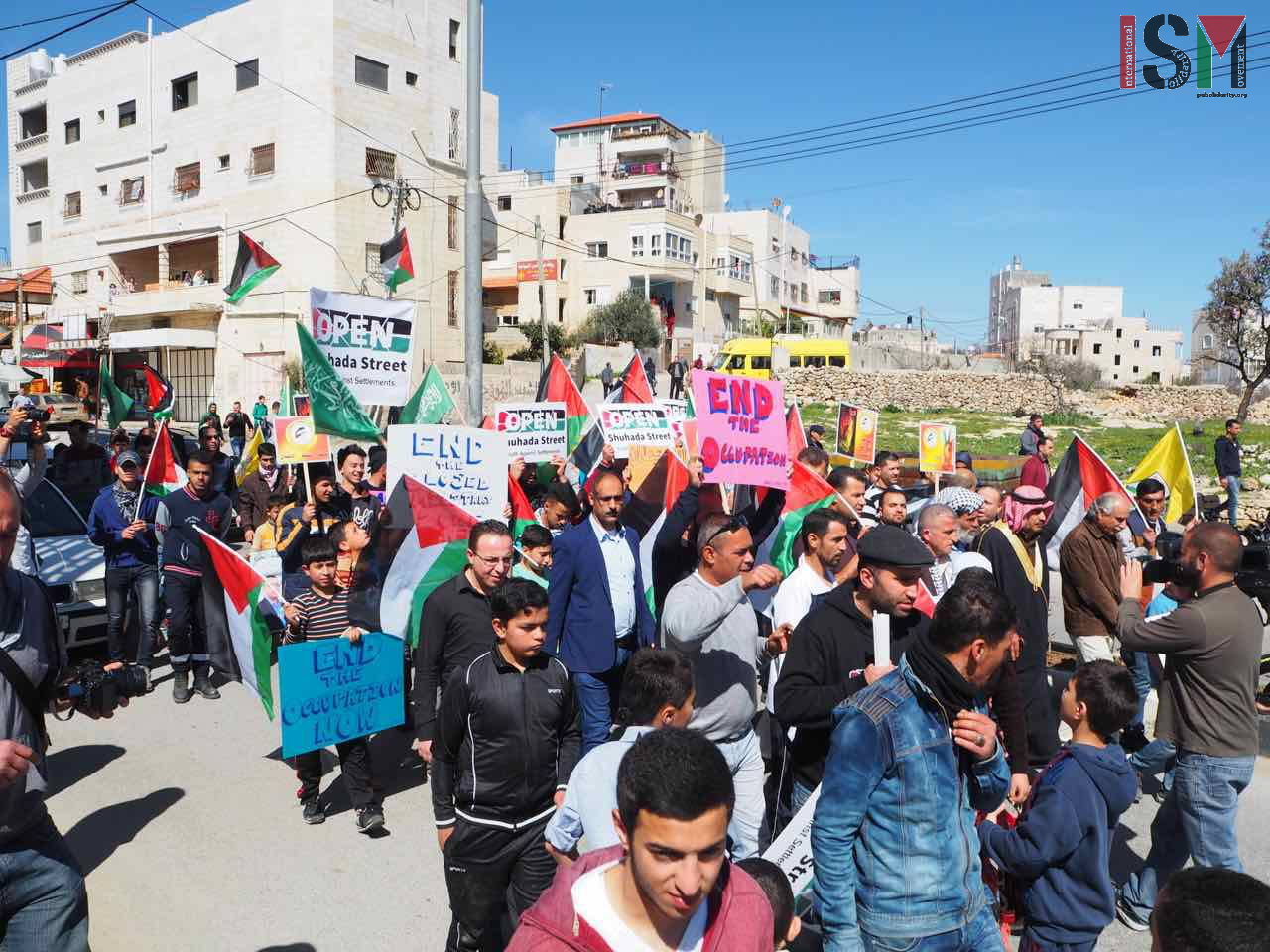Category: Hebron
-
Israel’s silent war on the children of Palestine
29th February 2016| International Solidarity Movement, Al-Khalil team | Hebron, occupied Palestine Fortunately much of the world is now fully aware of Israel’s apartheid wall and the zionist state’s grotesque, illegal occupation of the Palestinian territories that it represents. But few are aware of the endless number of other apartheid structures scattered throughout Palestine with the…
-
Infamous settler Anat Cohen disrupts peaceful commemoration
27th February 2016 | International Solidarity Movement, al-Khalil team | Hebron, occupied Palestine On Wednesday evening, 24th February 2015, a commemoration for the victims of the 1994 Ibrahimi Mosque massacre in occupied al-Khalil (Hebron), was interrupted by infamous settlers attacking the group of Palestinians and internationals peacefully remembering those killed and the implications of this…
-
Demonstrators call for end to unjust restrictions in Hebron 22 years after Ibrahimi mosque massacre
26th February 2016 | International Solidarity Movement, al-Khalil team | Hebron, occupied Palestine On 26th February 2016, Palestinians in occupied al-Khalil (Hebron) jointly commemorated the Ibrahimi Mosque massacre and protested against the closure of Shuhada Street and the illegal Israeli military occupation. The peaceful demonstration, organised by the local activist group Youth Against Settlements as…



